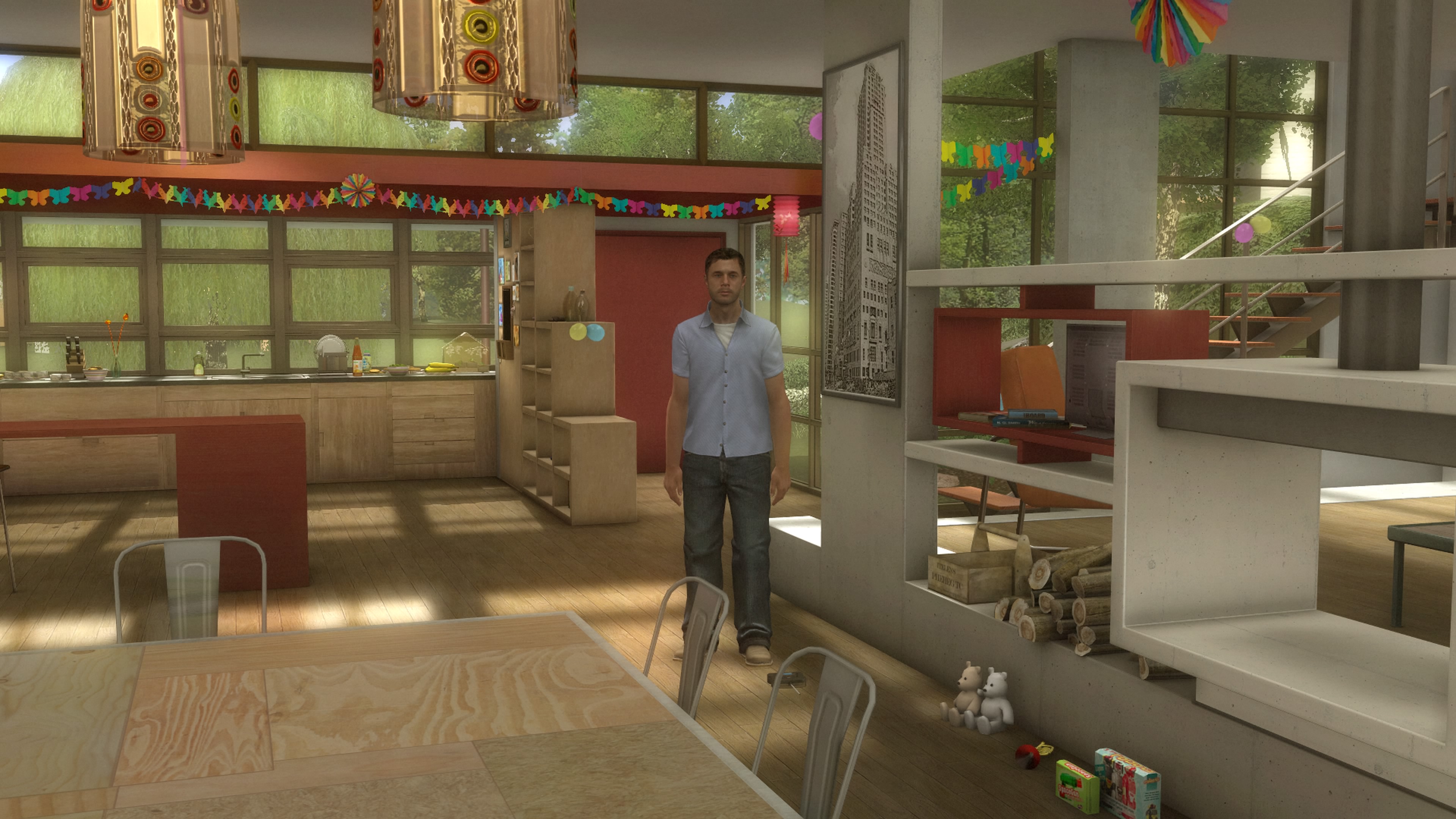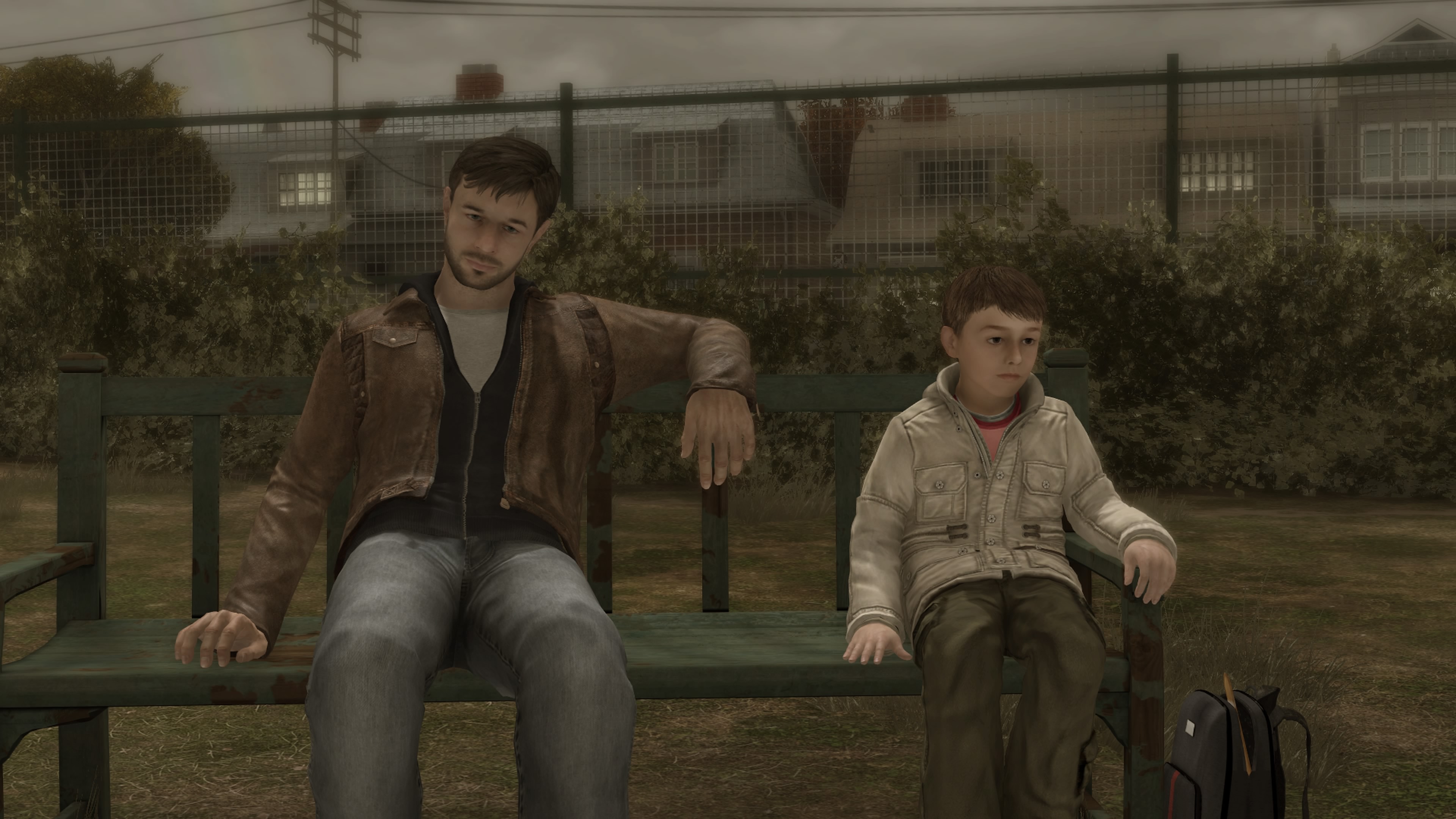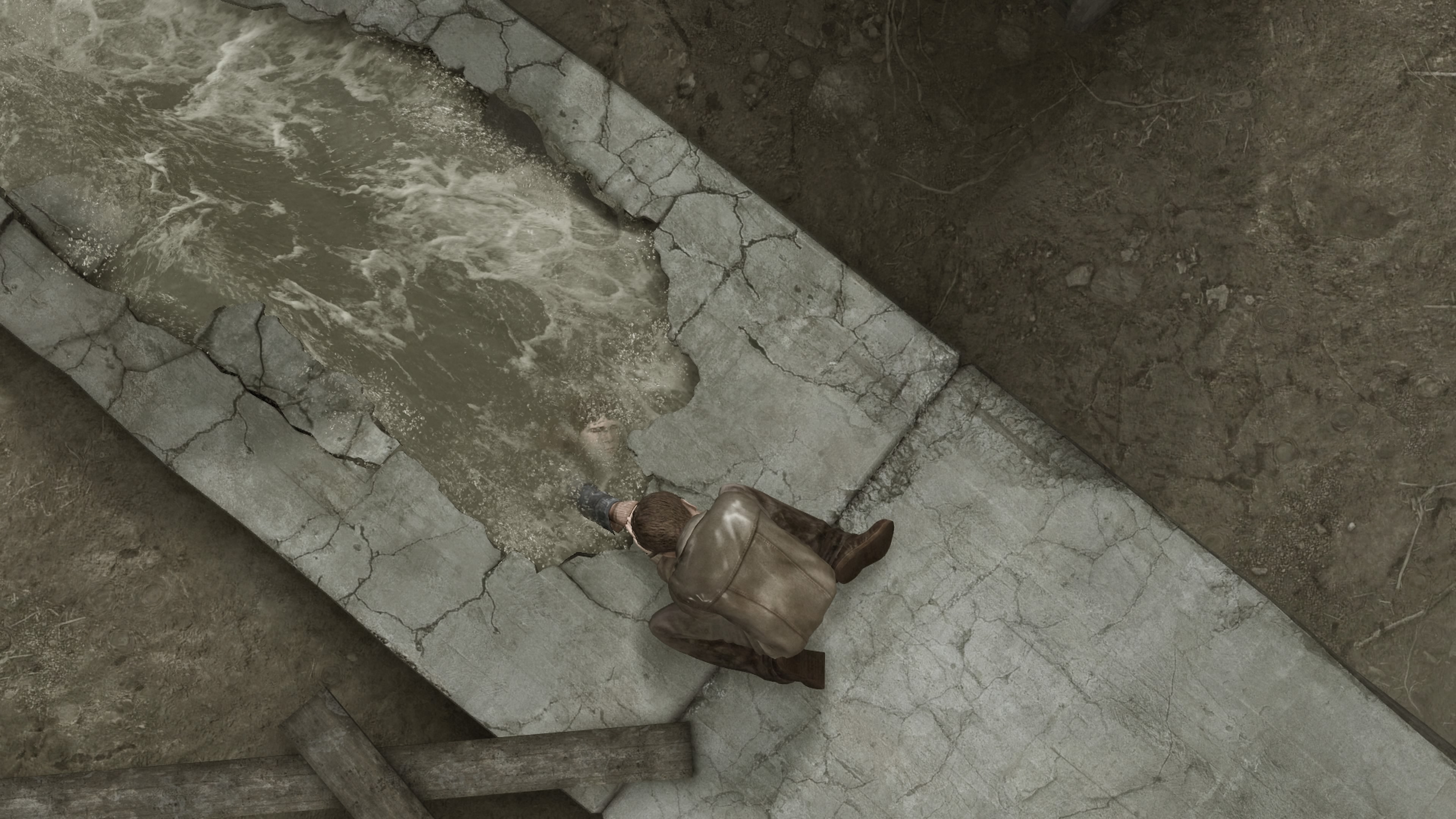Heavy Rain
Heavy Rain is about what people do in extreme situations. It starts out in an idyllic suburban household, where you play as a father of two young boys, one of whom promptly runs in front of a car (which fails to slow down at all) and dies. Unfortunately, the emotional punch I think Quantic Dream was trying to pull off here doesn’t really work that well, but at least it sets up a little bit of character psychology for the dad.
The game would be much worse if you weren’t able to switch characters, and see things from a new perspective. This gimmick also helps cover up who the true Origami Killer is, although it’s frustrating when you later learn that the events that you played through didn’t really happen the way you played through them.

Heavy Rain is deeply psychological, or at least it likes to think it is. It’s about a father’s connection with his son, and more generally about how we’ll do anything for the people we care about the most. The execution, though, is spotty at times.
One of my favorite scenes, bizarrely, is one where your kid comes home from school and you do normal dad things—get him to do his homework, feed him dinner, keep him away from watching too much TV. The distance between father and son (and implicitly, husband and wife post-divorce) is palpable. It was also one of the few scenes which didn’t feel heavyhanded.

Speaking of heavyhanded…just watch this video for a taste of the wonderful voice acting (and some other goofiness) you’ll get to enjoy!
The FBI agent was one of my favorite characters to play as, not least because of his cool gadget called ARI. It’s basically a virtual reality device where you can do detective work, but with a bunch of unnecessary features, like the ability to set your backdrop to a remote station on Mars.

The device half-fits the story. There aren’t many other sci-fi-ish elements in Heavy Rain, but the gestural controls make a lot of sense in context. It’s half-explained why the FBI might have such devices, but the local police don’t have anything remotely close.

In the end, David Cage relies too heavily on you caring for your video-game kids, going so far as to pull the same trick twice if you choose the wrong course of action during the in-game trials. Some of the scenes which were clearly meant to be serious ended up being pretty accidentally hilarious. However, the plot is obscured enough that it’s only guessable in advance if you pay very close attention, which makes the detective part at least somewhat interesting.
Play it if
You’ve been looking for a detective story where your choices matter, enjoy critiquing plot holes, or love quicktime events